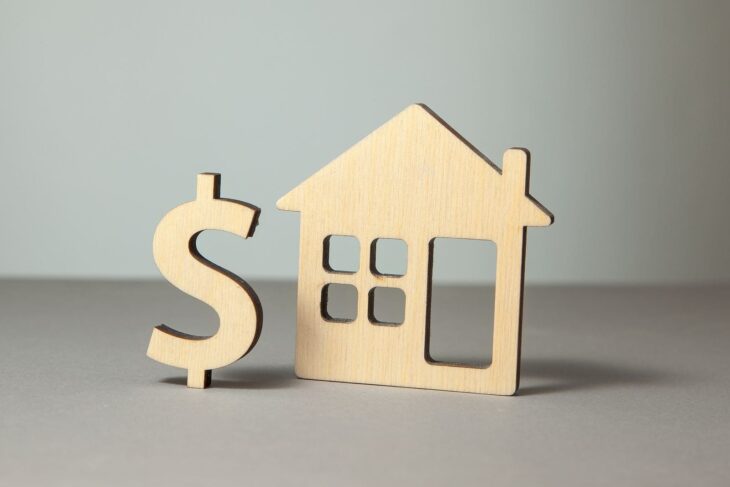Talk to any real estate expert and they’ll likely recommend investing in real estate capable of generating cash flow. Indeed, rental property management can be a lucrative side hustle or an easy way to generate wealth over time. Some people are even capable of retiring from the cash flow their rental properties generate.
But is rental property management a guaranteed financial windfall? And if not, how can you minimize the risks of losing money on a rental property?

Source: casinorank.com
The Short Answer: Rental Properties Can Lose Money
According to GreenResidential, rental property management is not a guaranteed way to make a profit. Historically, real estate has been a reliable investment. While there are temporary dips and recessions in the real estate market, prices usually return to normal within a few years of those events. If you hold a property for many years, you’ll probably see your property appreciate in value, and if you choose a fast-growing neighborhood, it may even skyrocket in price.
Additionally, if you have a rental property in a hot market, you should have no trouble collecting rental income in excess of your ongoing expenses. This results in positive cash flow in addition to the benefits you receive from property appreciation over time.
But neither of these effects are guaranteed. You could be stuck with a property that simply doesn’t appreciate, or one that actively loses value over the course of several years. You could also be stuck with a property incapable of generating enough rent to cover your expenses.
How exactly does this happen, and how can you avoid such an outcome?

Source: forbes.com
How Rental Properties Lose Money
Usually, rental properties only lose money because of one or more of the following reasons:
- A bad neighborhood. First, you might have a rental property in a bad neighborhood. If the crime rates are high or if the school systems are terrible, you’ll have an awful time attracting reliable tenants, and you won’t be able to charge much in terms of rent. Additionally, if the neighborhood isn’t on a powerful growth trajectory, your house won’t be able to appreciate very much, even over the course of years. Look for neighborhoods that appear to be on an upward trajectory, such as those that are constantly adding new job opportunities and those that are flourishing culturally.
- Too high a purchase price. In a buyer’s market, prices tend to escalate so fast that the increase borders on irrational. You may be desperate to get involved in real estate investing because you have a lot of spare cash, but this can lead you to an irrational decision. If you spend too much money on the property, you’ll have lower chances of long-term property appreciation. If you finance the purchase, you’ll also have higher monthly expenses, making it more difficult to turn a profit with rent.
- Excessive vacancies. Vacancies can kill an otherwise profitable property. Just because it can generate $2000 in monthly revenue doesn’t mean it will. If you have trouble finding new tenants, or if your tenants are constantly leaving, your financial model will begin to crumble. Fortunately, there are many ways to prevent excessive vacancies, such as improving your tenant screening process and keeping your tenants happy when possible.
- Bad tenants. Bad tenants come in many forms. They may not pay rent reliably or on time. They make too much noise and make your other tenants’ lives difficult. They may even damage or destroy your property directly. Take immediate disciplinary and corrective action when you can, and don’t be afraid to evict a problematic tenant.
- Ongoing maintenance and repairs. All properties are going to suffer some wear and tear over time. It’s a natural cycle of deterioration. But if your house constantly has things that break or if your house suffers from excessive wear and tear due to tenant neglect, your expenses may soon dwarf your incoming revenue. Proactive maintenance can prevent many repairs, but it also pays to choose a property that’s already in good condition.

Source: mashvisor.com
How to Minimize Risk in Rental Property Management
What can you do to minimize your risk when purchasing and managing rental properties?
- Work with a property management firm. Consider enlisting the help of a property management firm. These firms will help you with a wide range of different responsibilities, including tenant screening, property marketing, shopping for new properties, handling tenant complaints, collecting rent, and even dealing with evictions. Most of them firms charge a small management fee that’s more than worth it for their services.
- Do your research. Never make a decision based on gut feelings or intuition. Spend time researching your decisions and backing them up with data. Are you sure you can get a reasonable amount of rent from this property? Are you confident that this neighborhood is growing? Does this tenant really have a good credit history? The more information you have, the better.
- Only invest what you’re willing to lose. When you’re first starting out, it’s advisable to only invest what you’re willing to lose. Your chances of having a property lose money are relatively small, but you need to be prepared for that chance. This way, if you do suffer losses, they’ll never be catastrophic.
- Hedge your bets. Any investor can tell you that it’s important to balance your portfolio. Real estate can be valuable investments, but the real estate market is still subject to volatility and big fluctuations. Hedge your bets by investing in different types of assets, like stocks, ETFs, bonds, precious metals, and alternative investments. Then, make it a point to rebalance your portfolio over time.

Source: thefinancebff.com
There are no guarantees in the real estate investing world. Even with the best intentions and ample research, there’s a chance you could lose money on almost any deal. But if you have a good team behind you, you take risks intelligently, and you back all of your strategies with data, you’ll be in a much better position to make profitable real estate investing and management decisions.
